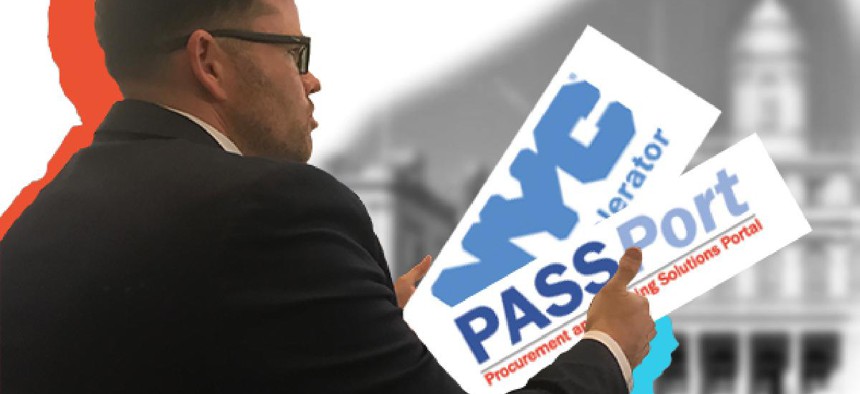The Renewable Grants Fund is what keeps nonprofits afloat as they wait for New York City contracts

Illustration by Zach Williams/ NYN Media
If you want to know how far behind the city is with registering contracts for nonprofits, you could start by checking the balance of the Renewal Grants Fund.
The incoming chair of the New York City Council's Committee on Contracts, Councilman Justin Brannan, says the fund is a “barometer” of sorts that measures the pressure that human services nonprofits are under as they negotiate some $7 billion in contracts with the city.
This is the fund that the city uses to front cash to nonprofits who find it difficult to cover operating costs before they reach the end of the city procurement process. Since as of Feb. 26 the $68 million fund has loaned out all but $11 million, the reasoning would follow that human services nonprofits are feeling lots of financial pressure indeed.
There needs to be more urgency in making the city procurements process faster and more efficient, Brannan said in an interview on Feb. 27.
“In some ways, I’m worried that we’re surrendering or like codifying this glacial procurement process,” he said.
The fund remains stable and does not need an infusion of dollars, Dan Symon, acting director of the Mayor’s Office of Contract Services (MOCS), reassured the committee at a hearing on Feb. 27. But as the entire city procurement process undergoes a streamlining and modernization process, the Renewable Grant Fund continues to play a vital role by keeping the city’s struggling nonprofits afloat.
The Renewable Fund Grant began in 1992 in order to support the Summer Youth Employment Program, but it now helps human services organizations as diverse as foster agencies and community centers who hold approximately 10,000 contracts with the city at any given time, according to Symon. Over the course of Fiscal Year 2017, more than $149.9 million was loaned out on 751 occasions, according to Symon’s Feb. 27 testimony.
Symon said that there has only ever been “one or two” defaults on such loans in the history of the fund. The loans are repaid from the outstanding contract money once it’s awarded to the nonprofit, and it then goes back into the fund.
Under ideal circumstances, this fund – which is a collaboration among MOCS, the Fund for the City of New York and the city Office of Management and Budget – would not exist at all, Symon said at the meeting. But “tons” of pitfalls await a nonprofit contract on its way to registration, even when it is obvious to both sides that final approval will come – eventually, Symon said in an interview, though he declined to offer any specific examples.
Brannan, who replaced City Councilwoman Helen Rosenthal as chair of the Committee on Contracts, noted in the meeting that the notion that a nonprofit would be trustworthy enough to get money from one part of city government but not the other appeared to be a contradiction.
“While registration is reasonably assured by the city, it is not necessarily – from a procedural point of view – final. And so the difference in between those two things is the why the loan would allow cash flow for nonprofits,” Symon said in an interview.
In the meanwhile, the city continues to look to improve on the speed of contract approvals and make the whole procurement process easier for nonprofits.
The HHS Accelerator System, which helps with the filing of Requests for Proposals and financial management processes is online.
The first of three implementation stages ended this past summer for another online system called PASSPort, which allows nonprofits to file disclosures and other documents online, according to Symon. More than 8,500 vendors are using the service, he said, with plans for up to 20,000 registrants in total. The second and third stages are scheduled to take place over the next two years, though no dates have been finalized, he added in his testimony.
The end goal – in an ideal world at least – would be for a digital end-to-end system that would take any contractor from RFP to contract renewal with an ease that would represent a milestone moment in the history of municipal procurements, according to Symon.
“We would be on the Mount Rushmore of procurements,” he told the committee before adding: “I wouldn’t say that’s in the cards right now.”
The Committee on Contracts is scheduled to meet next on March 27.
NEXT STORY: New York's most competitive congressional races